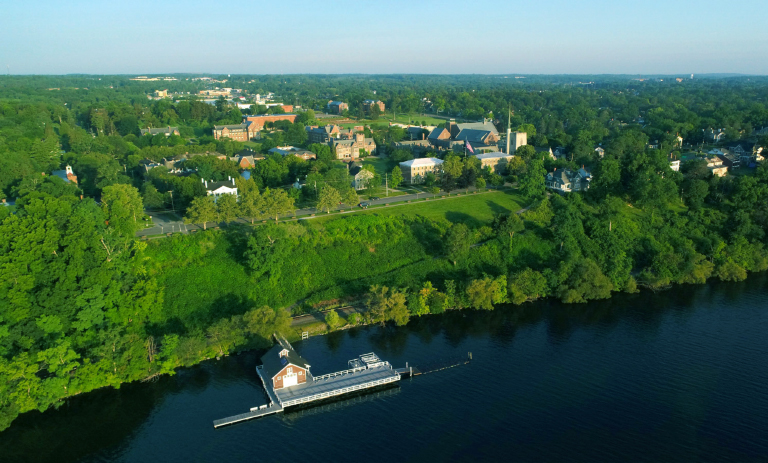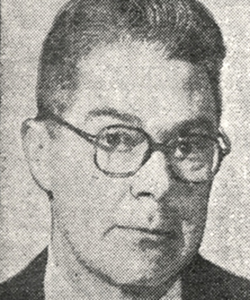
Lives of Consequence
Edward E. Rigney ’31

As a prosecutor at the Nuremberg military tribunals, Edward E. Rigney was part of the team responsible for convicting war criminals in what Norman Birkett, one of judges at Nuremberg, called “the greatest trial in history.”
After graduating from Hobart in 1931, Rigney attended Columbia University Law School before returning to his hometown of Holcomb, N.Y., to manage his family’s general store during the Depression. He returned to his law studies, earning his degree from Fordham Law School in 1936, and became an assistant U.S. Attorney in New York, working primarily on cases involving tax and mail fraud, counterfeiting and bribery.
During World War II, he joined the U.S. Army, working in military intelligence, and rose to the rank of captain. At the end of the war, Rigney served as a prosecutor at Nuremberg, where he was a staff member under the U.S. Chief of Counsel Robert H. Jackson. Held from November 1945 through October 1946, the trials resulted in the convictions of high-level Nazi leaders and set the precedent for the Universal Declaration of Human Rights and the Geneva Convention.
After Rigney returned to the U.S. Attorney’s Office in New York, the city’s mayor appointed him a deputy city Police Commissioner and confidential assistant to the police commissioner in 1950. Rigney served briefly as a trouble-shooter for the commissioner, before joining a private law firm.
However, within just a few years, he returned to public service when incoming United States Senator and outgoing State Attorney General Jacob K. Javits named him Special Prosecutor to investigate scandals and political corruption in Suffolk County. Rigney’s work led to indictments, convictions and guilty pleas, but by 1959, he resigned due to tightening political and budgetary strictures. “It now seems certain that much wrongdoing and corruption in Suffolk County will go unpunished,” he said at the time.
As a law partner and private attorney, Rigney was associated for many years with one of the country's oldest firms, Alexander & Green, which became Walter, Conston, Alexander & Green before merging with Alston & Bird.
Rigney passed away in 1994.
Today, the Colleges’ scholarship in debate is named for Rigney, who was also a prominent member of the Debate Team as a Hobart student. The scholarship is awarded to first year applicants who, like the scholarship’s namesake, exhibit significant competitive success or contribution in the areas of debate, Model U.N. or similar programs. Their names are prominently displayed on a recognition plaque in Coxe Hall upon graduation.
